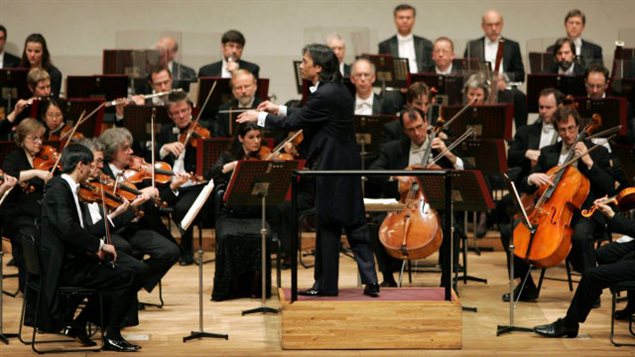The Canada Council for the Arts has been transforming itself into an agency of the digital age and scope. CEO,Simon Brault, says the process is in response to the shifts in society. These shifts are on both the societal level as well as the technological.
ListenThe Canada Council for the Arts, as the public arts funder, has streamlined the number of programs it operates, from 148 to six. Over the last year $155.1 million (Cdn) was allocated to arts and cultural pursuits across the country. If the new Liberal government fulfills its promise to double the budget the organization could have as much as $360 million (Cdn) to support a greater diversity of Canadian arts and culture, in a great variety of modes.
“We realized we needed to change the relationship that we had with artists from the First Nations”
One of the aims of the new funding model, that goes into effect in April 2017, is to better reflect the current diversity of Canadian society. In the spotlight and behind the scenes, from crews to boards of directors, the Canadian “mosaic” must be evident. Already the Toronto Symphony Orchestra has responded by hiring a diversity consultant to help it reflect its place in the world’s most multi-cultural city.
Simon Brault is leading the transition to a more flexible and adaptable model of the council. He talks about the blurring of disciplines; “A lot of artists want to do be able to do different things and escape very specific categories in terms of what they do. The way of thinking is not only multi-disciplinary but non-disciplinary.” He says the goal is to be less prescriptive.
“We should support the work for its intrinsic values and its impact so, tell me what you want to do and the Canada Council has the responsibility to find a way to support you and not, tell me how you fill the eligibility criteria that we pre-determined at the Canada Council according to a model of artistic discipline that was very Euro-centric and that is very much a heritage of the post second world war era.”
Another major shift is embracing the new reality of Canada’s indigenous peoples. Brault described it as a big incentive to reinvent the organization.
“We realized we needed to change the relationship that we had with artists from the First Nations… We had a relationship that was quite colonial in terms of OK, we will support you if you fit the criteria we defined and those criteria were most of the time in line with the canons of beaux-arts to a model now in the future where the notion of self-determination and contextualizing the work of aboriginal artists in their own context and not in the colonial context”
In the meantime, while this transformation of the council is underway, the agency is acting immediately to demonstrate how the arts can respond to larger issues in Canada.
In April, a program begins, in which the council is encouraging arts institutions and organizations to welcome Syrian refugees with reduced admission or free of charge. It’s an invitation to experience aspects of Canadian culture that reflect a broader welcome. Brault views the initiative as a pilot project.
“It’s very symbolic at this point and it’s related to this specific crisis but if we see that there’s traction and that it works it could be clearly a way of supporting inclusion in our society for a lot of Canadians, or new Canadians, that are for whatever reason, not included in the cultural sector.” The $200 thousand dollar fund is a partnership with Sunlife Canada.
This evolution of the arts agency that began in 1957, is timed to coincide with the 150th celebration of Canada in 2017. These changes should reveal Canadians as we are now, and perhaps help the newest and most traumatized, have a memorable first year.







For reasons beyond our control, and for an undetermined period of time, our comment section is now closed. However, our social networks remain open to your contributions.